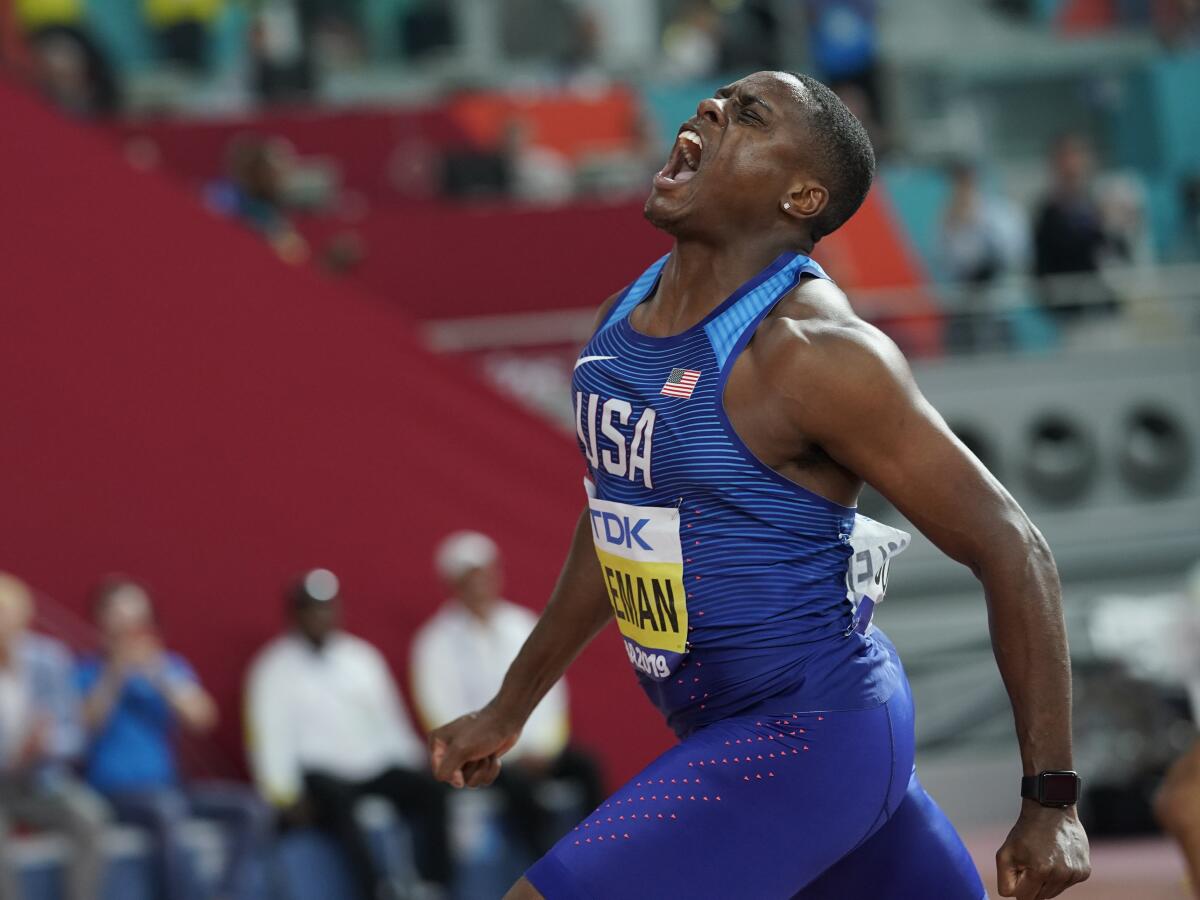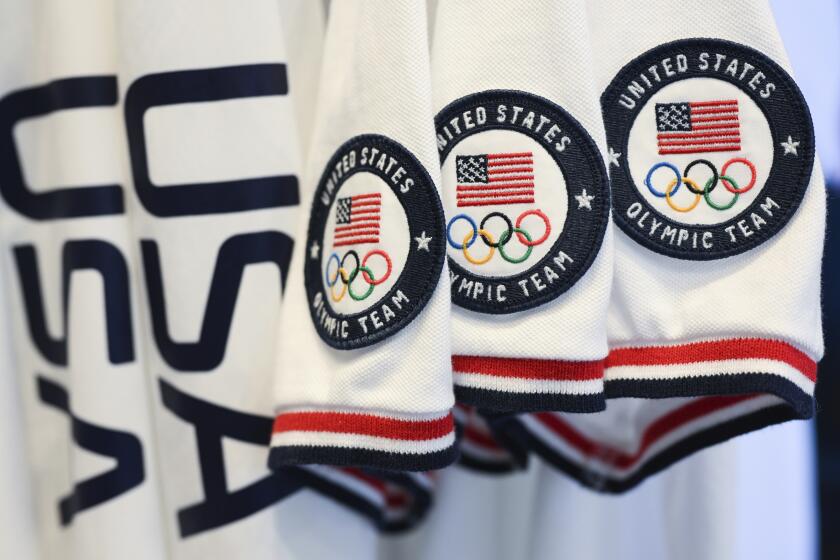Ruling in doping case to keep world’s fastest sprinter out of Tokyo Olympics

The world’s fastest man ran into a brick wall Friday when an international appellate court ruled him out of the Tokyo Olympics.
American sprinter Christian Coleman, the defending world champion at 100 meters, had hoped to succeed the retired Usain Bolt as king of the sprints in Japan this summer.
But facing a two-year ban for missed drug tests, Coleman saw his appeal fall short when the Court of Arbitration for Sport reduced his penalty by only six months, keeping him off the track until late fall.
In a statement released to the media, Coleman cited several paragraphs from an as-yet unpublished CAS ruling. The sprinter said the court found no evidence that he was “masking drug use, or using drugs.”
“While I appreciate that the arbitrators correctly found that I am a clean athlete,” he stated, “I am obviously disappointed that I will miss the Olympic Games this summer.”
The 25-year-old’s troubles with anti-doping authorities stem not from positive test results — he has never been found to use performance-enhancing drugs — but from a testing program that requires athletes to submit an advance calendar stating where they will be during an hourlong window each day. This allows testers to show up at random.
American athletes headed for the Olympics in late July have varying opinions about the need to protect themselves against the coronavirus.
Athletes can be cited for failure to comply if they do not submit a location or are somewhere else when testers arrive.
The U.S. Anti-Doping Agency first cited Coleman several years ago but dropped the case because of a technicality. He subsequently ran afoul of the Athletics Integrity Unit, or AIU, which oversees anti-doping efforts for the international track federation.
It was last fall that the AIU handed down its two-year sanction, saying Coleman had not been present when testers arrived to collect samples on multiple occasions in 2019.
In one instance, he was supposed to be home in Kentucky but was actually competing at the Drake Relays in Iowa. In another, he said he was Christmas shopping at a nearby mall.
Authorities stated there was “no suggestion that the athlete has ever taken any prohibited substance” but characterized his adherence to testing protocol as “careless at best and reckless at worst.”
Coleman argued that he would have come straight home had testers called him on the day he was shopping. On Friday, a CAS panel of three judges expressed some sympathy but also noted that Coleman “should have been on ‘high-alert’ ” because of previous missed tests.
The court ruled that his “degree of negligence” was lower than alleged by the AIU but still deserving of an 18-month ban.
“The decision confirms that athletes must take their whereabouts responsibilities seriously,” AIU chief Brett Clothier said.
In winning a world championship in 2019, Coleman ran the 100 meters in 9.76 seconds, the fastest time in the world over the past five years. He will regain eligibility in time to defend that title in Eugene, Ore., next year.
More to Read
Go beyond the scoreboard
Get the latest on L.A.'s teams in the daily Sports Report newsletter.
You may occasionally receive promotional content from the Los Angeles Times.









